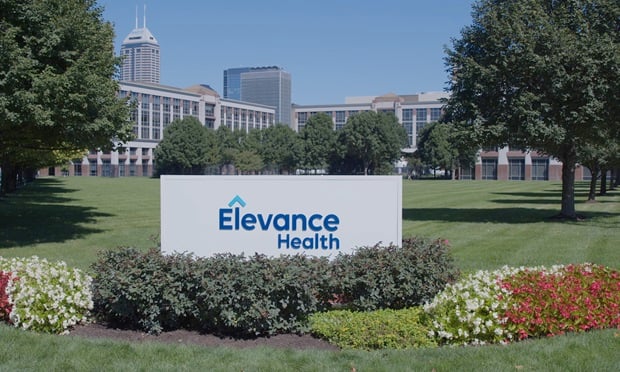A New Jersey woman who had twins by a gestational surrogate has filed a discrimination suit against Verizon Communications because she was not allowed to take time off under the company's paid maternity leave policy.
Marybeth Walz of Red Bank said Verizon grants six to eight weeks of paid leave to women employees who become mothers through birth or adoption. Walz opted to use a surrogate because her uterus had been removed after she was diagnosed with cervical cancer in 2001. But the company refused to grant her paid leave, and instead required her to use vacation and sick days when the twins were born prematurely in November 2013, the suit said. As such, she suffers from a pregnancy-related disability because she is unable to become pregnant, her suit claims.
Granting paid leave to a woman who becomes a mother through surrogacy allows her to bond with her child, said Gaia Bernstein, a professor at Seton Hall University School of Law in Newark whose areas of study include reproductive technology and the law.
"There are more and more surrogate cases. I think the mothers [who use a surrogate] should get the same benefits as a mother who is adopting or an actual mother because they are the one taking care of the baby. The way they got the baby is irrelevant," said Bernstein.
The suit, Walz v. Verizon Business Network Services, accuses Verizon of sex, pregnancy and disability discrimination as well as retaliation and violation of the Family and Medical Leave Act. It was filed in federal court in Boston in September 2015, but Verizon moved to transfer the case to the District of New Jersey.
One of the boys, Thad, suffered a pulmonary hemorrhage and died one day after birth. The other, Jude, was diagnosed with a rare form of cancer and died six months later. While she was coping with the death of Thad, the serious illness of Jude and her own grief-related mental disability, she received a new job assignment that she contended was a demotion. And shortly after Jude's death, she was terminated from her job.
Walz's eggs were fertilized with an anonymous donor's sperm and transferred into the uterus of her sister-in-law in May 2013. Walz, her sister-in-law and her brother obtained a consent order from a North Carolina court, calling for Walz's name to be listed as the mother on the twins' birth certificates, with no name listed for the father. The order also severed the rights and responsibilities of Walz's brother and sister-and-law to the twins.
Related: Adoption benefits on the rise
Walz said a Verizon human resources representative suggested she adopt the twins, to which she replied that she saw no need to adopt her own children, and was instead securing her rights through a consent order The human resources representative said "shame on you for doing it that way," and said the company would pay $10,000 in expenses if she adopted the children.
Verizon's handling of the case caused Walz extreme emotional distress and anxiety, she claims.
Lawyers for Basking Ridge-based Verizon, from Morgan, Lewis & Bockius, have moved to transfer the venue to New Jersey, and the case has been stayed pending a ruling on venue. The company maintains that the plaintiff, defendant and most of the witnesses are located in New Jersey and the only reason for the case to be in Massachusetts is that the plaintiff's lawyer is located there.
A Morgan Lewis attorney in Princeton, Michelle Silverman, did not respond to a request for comment.
A Verizon spokesman, Bob Varettoni, said the company "has not yet addressed the allegations in the case, pending this change of venue ruling. The company will file its response in court at the appropriate time but until then it will not comment on matters under litigation."
Walz's lawyer, Charles Rodman of Wellesley, Massachusetts, declined to comment on the case. In 2012, his client reached a confidential settlement in a similar case, Krill v. Cubist Pharmaceuticals, in the federal court for the District of Massachusetts. In that case, the plaintiff, Kara Krill, who was unable to become pregnant for medical reasons, sued her employer for denying her paid maternity leave when she became the mother of twins through a surrogate birth.
Complete your profile to continue reading and get FREE access to BenefitsPRO, part of your ALM digital membership.
Your access to unlimited BenefitsPRO content isn’t changing.
Once you are an ALM digital member, you’ll receive:
- Breaking benefits news and analysis, on-site and via our newsletters and custom alerts
- Educational webcasts, white papers, and ebooks from industry thought leaders
- Critical converage of the property casualty insurance and financial advisory markets on our other ALM sites, PropertyCasualty360 and ThinkAdvisor
Already have an account? Sign In Now
© 2024 ALM Global, LLC, All Rights Reserved. Request academic re-use from www.copyright.com. All other uses, submit a request to [email protected]. For more information visit Asset & Logo Licensing.








